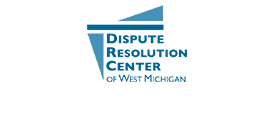What is Restorative Practices?
Restorative Practices in Schools
Restorative Practices in Schools provides early intervention for youth who are beginning to demonstrate problematic/delinquent behavior. This program teaches effective, non-violent ways to handle anger, frustration, and conflict. Restorative practices foster the development of empathy, which creates a more caring and safe environment.
There is a great need for early conflict intervention in our educational system – school code violations, escalating conflict between peers, and delinquent behavior disrupt the school environment and negatively impact our community – and the DRCWM is doing something about it. We initiated a pilot program called Restorative Circles at Lee Middle School in 2013. (Read Rapid Growth Media story about the pilot program here.) The program has been expanded to other area schools in the Kent County.
The Center currently has trained, onsite Restorative Practices Facilitators at the following locations:
-
- High School
- Junior High School
- Intermediate School
- Gladiola Elementary
- Oriole Park Elementary
- Parkview Elementary
- West Elementary
Youth are referred to our onsite facilitators by school staff (administrators, teachers, counselors, and security officers), and students may also self-refer to prevent escalation of a conflict.
Effective August 1, 2017. Michigan mandates that schools consider Restorative Practices before suspending or expelling students. MI House Bill No. 5618 (Section 1310d. [1] [f])
Michigan Department of Education (MDE) Frequently Asked Questions on Restorative Justice. Click Here for Details
Restorative Justice Conferencing (RJC) for Juveniles
RJC is a face-to-face meting between the person who committed the crime and the person who was affected by the crime. It holds the person who committed the crime accountable for behavior and provides those harmed an opportunity to explain the harm and receive answers to questions.
During the RJC, participants discuss what happened and how they were affected. Next the participants work together to develop a written plan to repair the harm. The DRCWM monitors the agreement for compliance.
How Conferencing Works
- A referral is made to the Center by the Kent County Probation Office after parties voluntarily agree to participate.
- The DRCWM program manager schedules pre-conference meetings with all parties (including parents).
- A restorative conference is held where those involved have an opportunity to explain their view of what happened, who was affected or harmed, and how the harm can be repaired.
- Participants work to develop a written agreement of how to repair the harm.
- The Center follows-up with participants based on agreement deadlines.
- Status updates and compliance with the agreement are shared with the Prosecutor and Probation Office.
- Collection and analysis of comprehensive data.
DRCWM Restorative Practices/Justice Programs in the News!
- Schools Taking a Restorative Approach to Discipline to Curb Suspensions – July 2016
- With Michigan’s students falling behind, it’s the business of business to respond – July 2016
- Mediator in Schools to Resolve Escalating Conflict – March 2016
Check out this cool video, then scroll down for more info:
